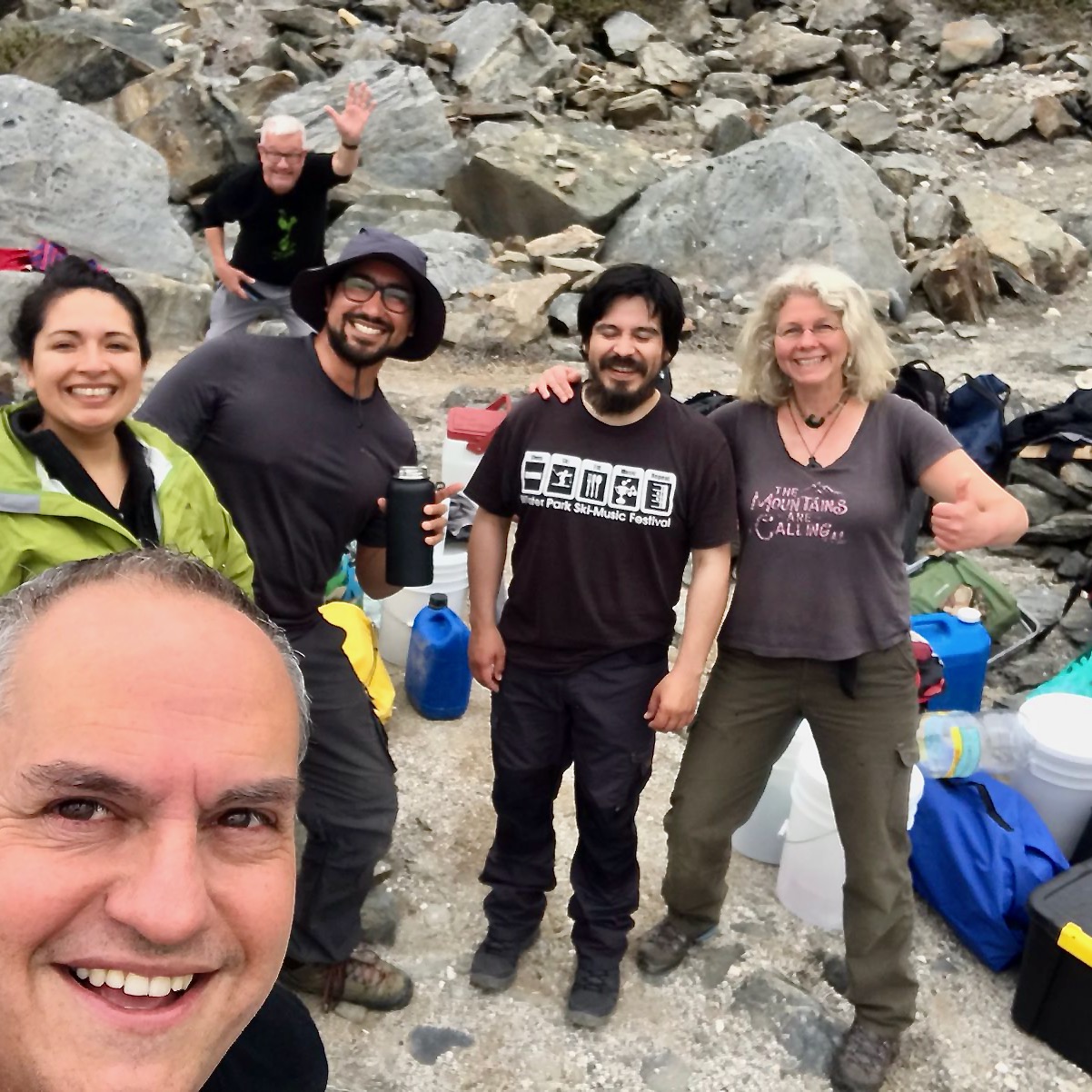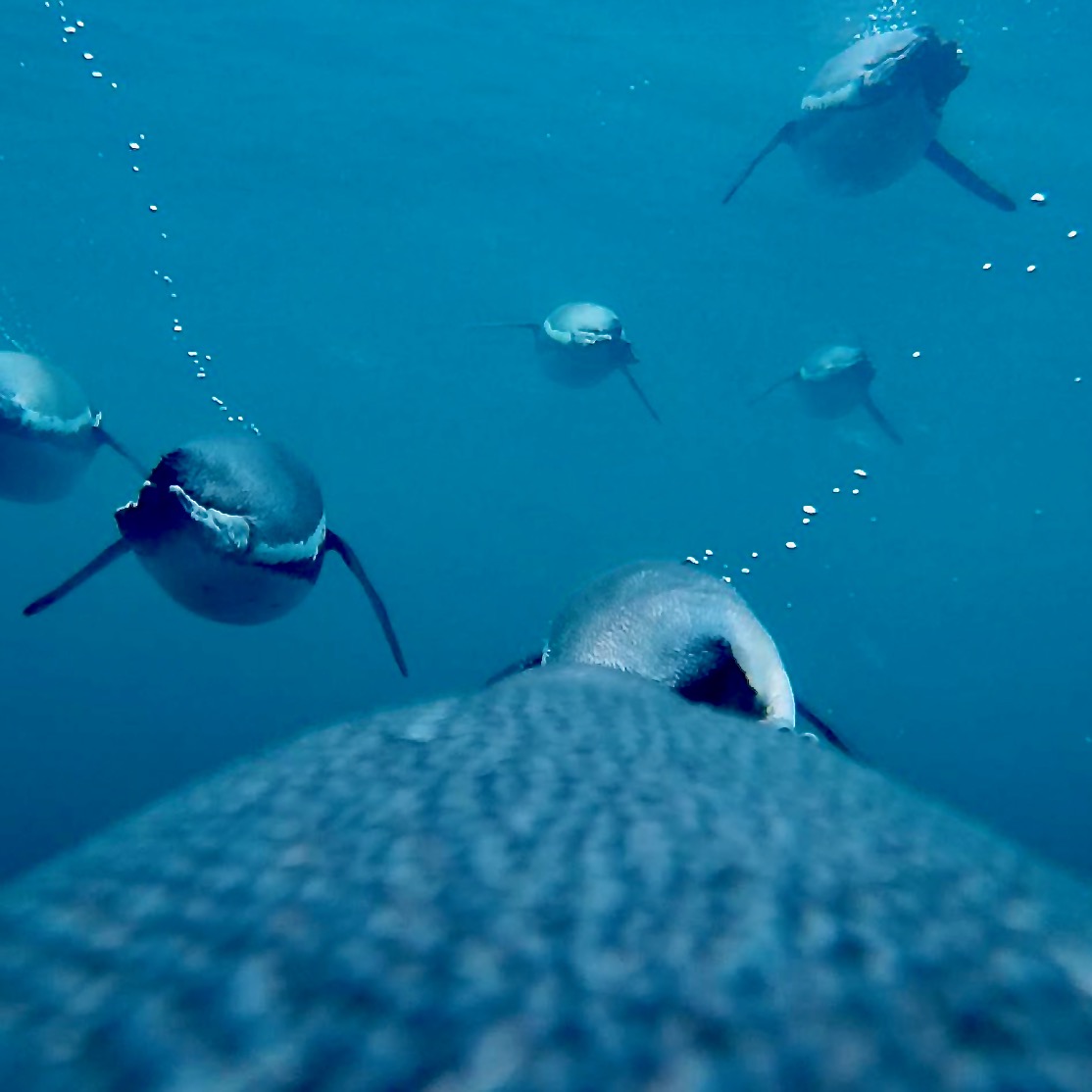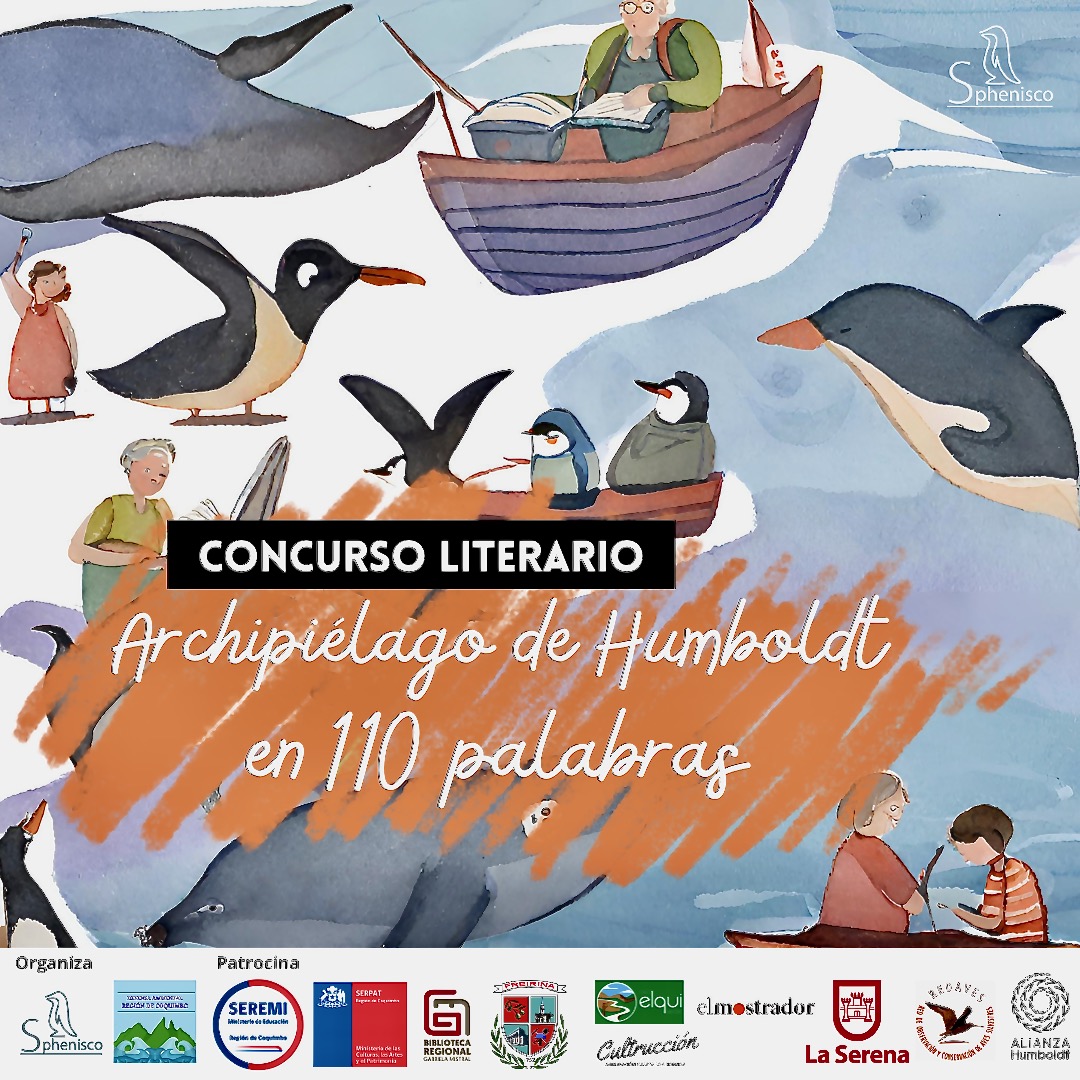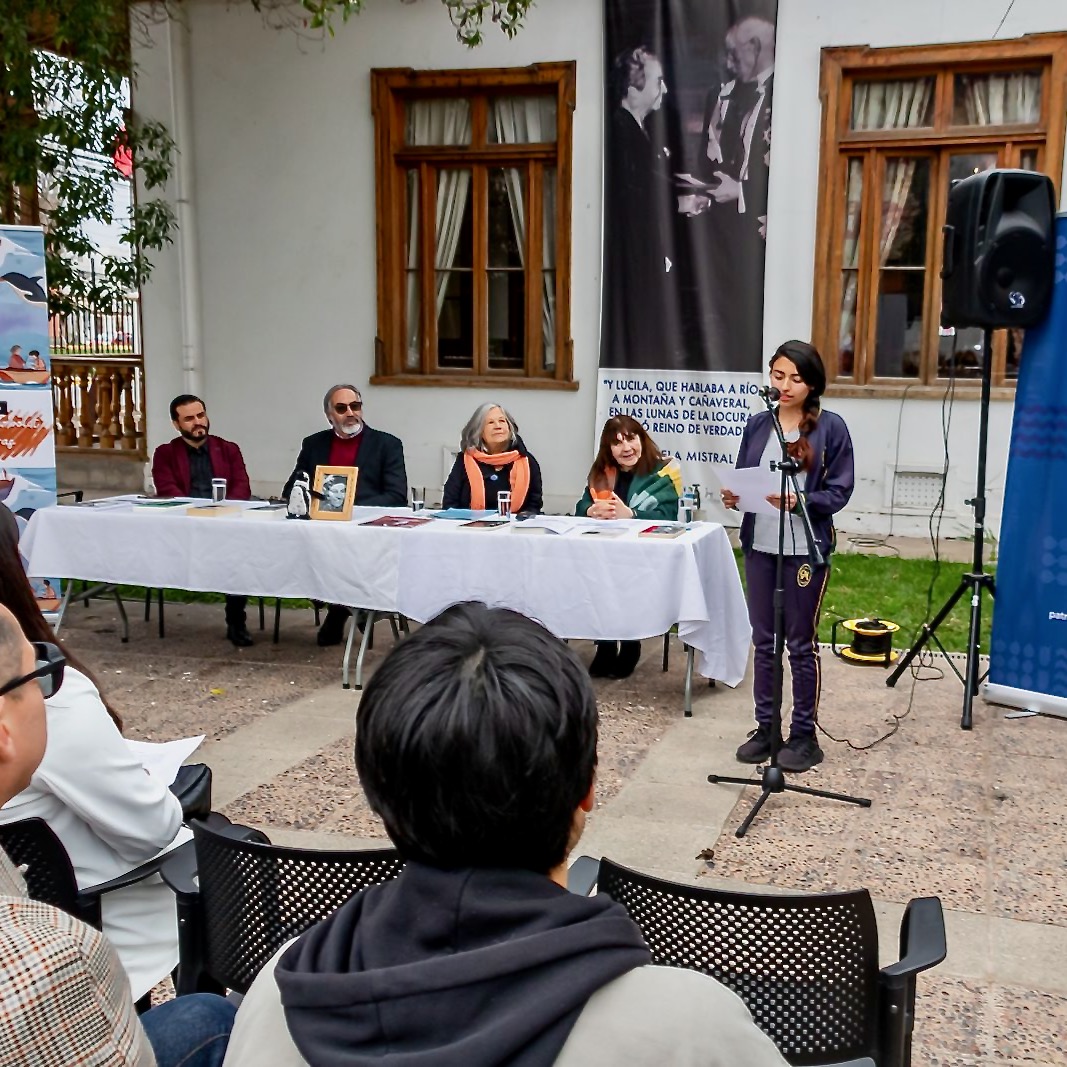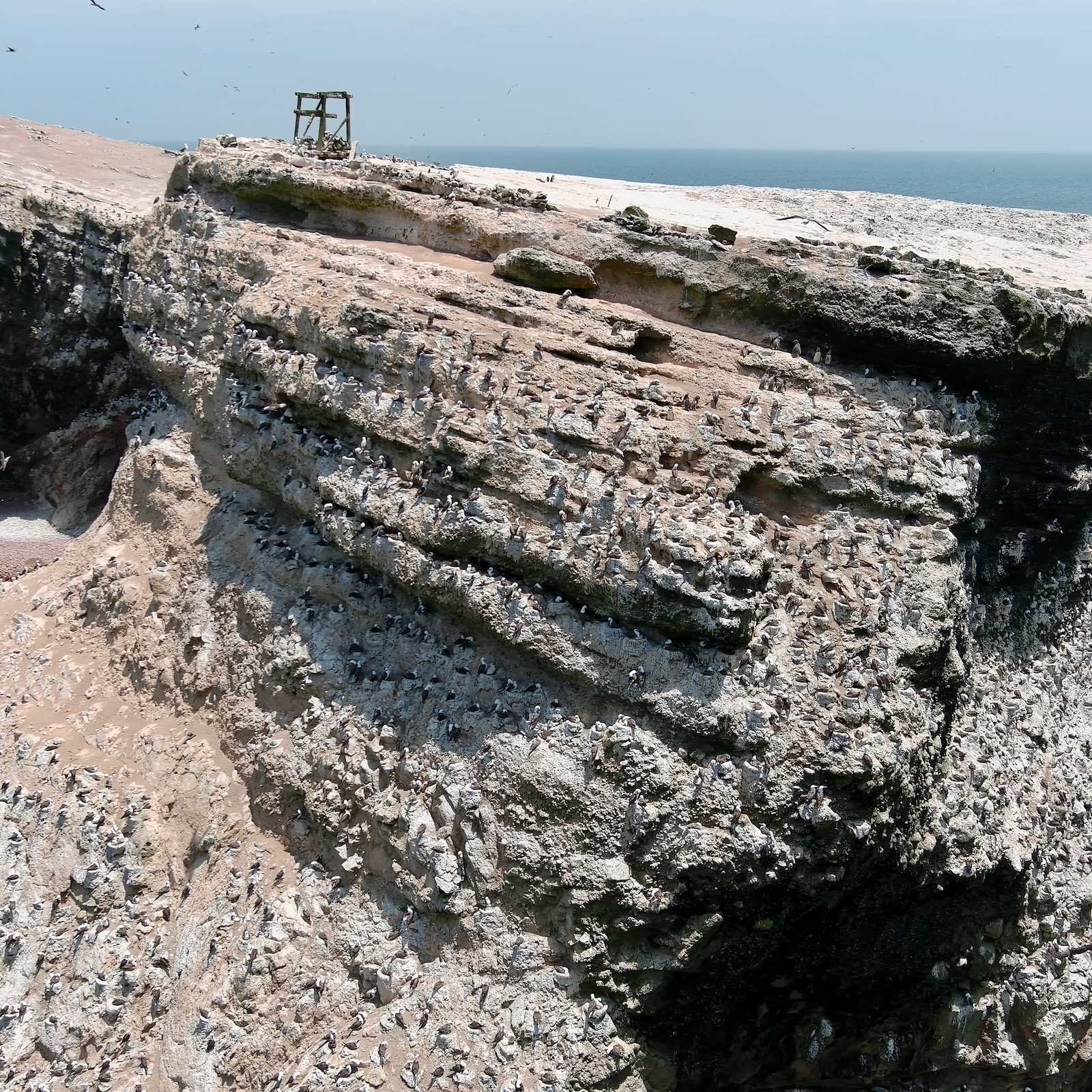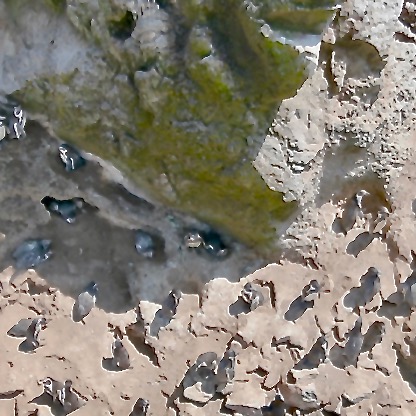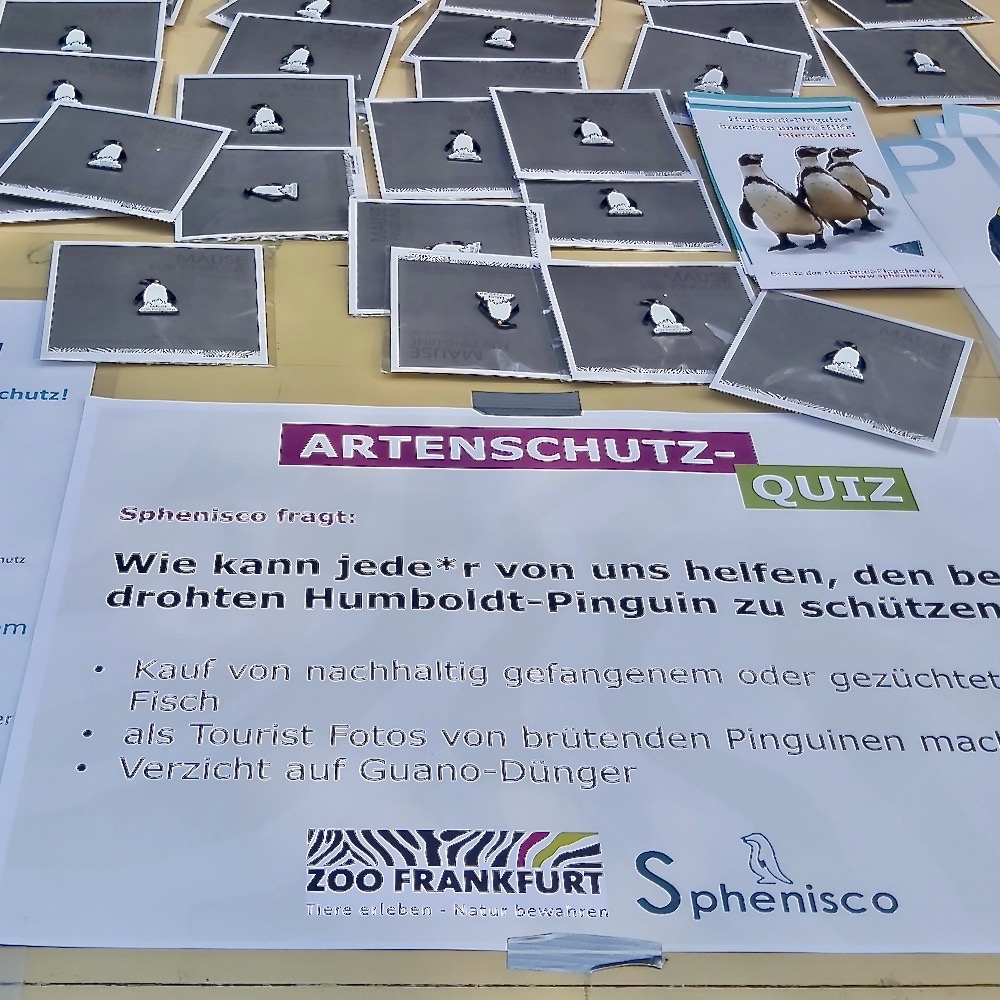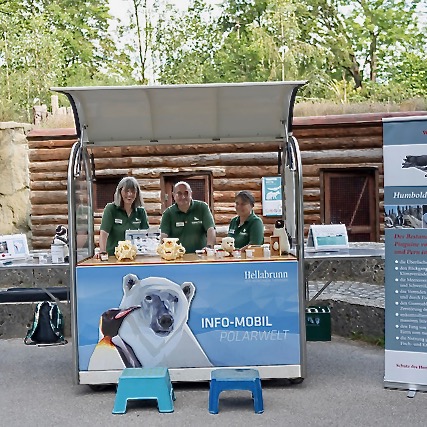Landau, 7. August 2024
C H I L E
+++El Niño Prevents Research+++
At the beginning of July, the New Zealand researcher Thomas Mattern wanted to travel to Chile to continue his investigations into the penguins search for food on the islands of Choros and Cachagua. In mid-June, the head of the research project, Dr. Alejandro Simeone, informed us: "We are back from the breeding islands. Unfortunately, I have to confirm that there are no Humboldt penguins breeding at the moment, neither on the island of Cachagua nor on the island of Choros. I suspect that El Niño still has a strong effect on the productivity of the sea and therefore there is no food available for the penguins. The situation will certainly not improve in the short term. We also expect heavy rain in the coming days. So we have to wait until the (southern) spring before starting the counting of the penguins and the investigations on the search for food with GPS loggers and cameras. I have already talked to Thomas Mattern about this. We don't think it's worth it if he comes to Chile in July. … Unfortunately, this is not great news. But I am very optimistic about the (southern) spring."
+++ Literary Competition "Humboldt Archipelago in 110 Words"+++
The jury has made its decision and presented the winners of the literary competition "Humboldt Archipelago in 110 Words" at a press conference on July 31st. In the near future, a book with the "winning texts" and pictures of the archipelago will be designed. In October, the prizes will be "handed over", i.e. the 3 first-place winners will travel with relatives to Pt. de Choros and visit the Humboldt Archipelago. The sponsor of the project, which attracted a lot of attention and was rated very positively, is Rostock Zoo, Germany. (see article under "Projects in Chile", 9. August 2024 on this website).
+++Videopodcast „Sintonia Humboldt“+++
Since the beginning of April, Sphenisco-Chile, together with the Nivel Ambiental Network, have created a one-hour radio talk show called "Sintonia Humboldt", presented every week on Radio Montecarlo. The project is funded by the Halle Mountain Zoo, Germany and Wildlands Adventure Zoo in Emmen, Netherlands. The aim of the programs was to raise awareness of environmental protection and sustainability. After three months, the shows were thoroughly evaluated and it was decided to change the format to achieve a better reach.
Starting August 12th, "Sintonía Humboldt", will be continued as the video podcast, "Sintonia Humboldt". The podcast is based on interviews with leaders of organizations, researchers and authorities involved in environmental issues. The aim is to discuss socio-ecological issues, mainly in the context of the enhancement of the Humboldt Archipelago and its protection. Threats, economic activities, sustainable initiatives, cultural and historical heritage, protection regulations and their effectiveness will be discussed.
The video podcast will be published in the digital medium "elcomunal" https://www.elcomunal.cl (La Higuera) under the menu item "podcast" and its social network accounts (Facebook, Instagram). Elcomunal is the only online site with news from the municipality of La Higuera. The podcasts will also be distributed through the social network accounts of Alianza Humboldt Coquimbo-Atacama, Defensa ambiental, and SpheniscoChile. Sphenisco-Chile and the Nivel Ambiental network are trying to win over more online newspapers for information distribution.
The first broadcasts deal with the "Área Marina Costera Protegida de Múltiples Usos, AMCP-MU" (Marine Protected Area with Various Uses), and the current situation of the Humboldt penguin, i.e. the development of the management plan. The program of the video podcast on August 12th will be distributed via flyers on social networks.
+++Rescue Center+++
Serna pesca (Chilean Fisheries Authority) plans to renovate the rescue station on the grounds of the University Católica del Norte-UCN, and to operate it together with the university. In the meantime, plans and offers from craftsmen have been submitted. Operating costs for 1 year were also calculated approximately. However, it has (still) not been possible to clarify who will provide the specialist staff and be responsible for the care. Sphenisco is still willing to finance the renovation and operation - initially for one year.
+++„Fundación Sphenisco Chile“ is Being Established+++
On May 20th, Nancy Duman applied to the municipality of La Higuera for the creation of the "Fundación Sphenisco Chile". The examinations could not yet be completed, as minor changes to the statutes were necessary.
+++National Plan for the Conservation of the Humboldt Penguin+++
On July 26th, the Chilean Ministry of the Environment published a "National Plan for the Conservation of the Humboldt Penguin". The initiative is currently of particular importance, as the outbreak of bird flu in combination with a strong El Niño and other causes recently cost the lives of about 3,000 Humboldt penguins. The plan is part of the Species Recovery, Conservation and Management Plan (RECOGE) and is intended to combat the threatening decline in the population in Chile (see article "National Plan for the Conservation of the Humboldt Penguin" under Projects in Chile, August 5th 2024 on this website).
+++ PhD Scholarship+++
At the end of July, Dr. Alejandro Simeone sent the master's thesis of Isabel Bastías. This thesis investigates the overlap of fisheries and hunting areas of the Humboldt penguins during the breeding season. In the acknowledgement, she writes: "I would like to thank you for the opportunity to carry out this work as part of the project "Research on the Population Size and Foraging Behavior of Humboldt Penguins in Chile". The project is funded by an agreement between Sphenisco (Germany) and the Universidad Andrés Bello (Chile)."
The data of this project are the subject of various scientific papers and are the basis for dissertations. For example, Peruvian student Karen Lau A., at the University Católica del Norte (UCN) in Coquimbo, Department of Marine Biology (under the direction of Dr. Guillermo Luna), is currently working on a doctoral thesis on the topic "Investigation of the Behavior of the Humboldt Penguin at Sea and the Determination of Feeding Areas for the Design of Conservation Measures in the Most Important Colonies of this Species in Chile". The doctoral student's funding is expiring. It is currently being discussed whether and to what extent the doctoral thesis can be funded by Sphenisco, so that Karen Lau A. can stay in Chile and continue working on her dissertation.
P E R U
+++Research on the Ballestas Islands+++
From Peru came the good news in mid-July that "the Humboldt penguins are breeding." This clears the way for the investigations of "the population and breeding success on the Ballestas Islands after bird flu and El Niño". Acorema is currently seeking the necessary permits. The research work is funded by Frankfurt Zoo (Germany) and Marlow Bird Park (Germany).
+++ Counts 2023 and 2024 at Important Locations in Peru+++
Sphenisco asked about the results of the population census in 2023. In her response, Señora Milagros recalled that Peru was in a political crisis at the beginning of 2023 after the resignation of the president. There were many demonstrations at the time, which lasted for several weeks, with road blockades and curfews. In this situation, it was not possible to travel. The partners of the St. Louis Zoo also decided not to enter Peru.
At that time, Acorema also had to interrupt the investigations on breeding success on the Ballestas Islands (see report of 26 July 2023), as well as environmental education activities (see report of 31 May 2023).
The 2024 census took place as planned. The research team is currently preparing the mandatory report. When it is available, Sphensico will report the results.
+++Investigation of the Foraging in Peru+++
Ursula Ellenberg and Thomas Mattern (both University of Otago, Dunedin, New Zealand), Acorema and Sphenisco are currently discussing whether studies on the foraging of Humboldt penguins can also be carried out in Peru. The aim would also be to identify marine areas in Peru where Humboldt penguins hunt and to document their hunting behaviour. The results could be compared with the Chilean ones and thus clarify which characteristics of hunting behavior are adaptations to the respective habitat and which can be generalized. At the moment, suitable breeding colonies are being sought. Señora Milagros does not want to carry out the study in the colony of Punta San Juan, as research work is often carried out there. On Ballestas Islands, the examinations are not possible because the islands are inaccessible.
E U R O P E
+++Species Conservation Day Frankfurt Zoo+++
On July 14th , Frankfurt Zoo organized a Species Conservation Day and asked "How does species conservation work? How can we preserve the diversity of plants and animals and how can we counteract the increasing loss of biodiversity?" As in previous years, Sphenisco was represented with an information booth near the penguin enclosure. The stand was looked after by Elke Gerriets and Klaus Blumer.
" ... Our information booth was always particularly well visited after the feeding of the 42 Humboldt penguins. Children and adults took part in the zoo's species conservation quiz. Our quiz question ,"How can each of us help to protect the endangered Humboldt penguin?" was always solved correctly, with the answer "No guano fertilizer" being a good conversation starter. The children, but also many adults, could not do much with the term guano, so that we, Klaus Blumer and Elke Gerriets, were able to inform about the breeding conditions on the islands and on the coast of Chile and Peru, as well as the importance of guano/bird droppings for the construction of nesting holes. The penguin pins, which the Frankfurt Zoo had made available to our association, also met with great interest. The visitors were happy to donate and get a pin to show their support for environmental education and research projects in Peru and Chile," reports Elke Gerriets.
+++Hellabrunn Zoo "Climate, Animals and Us"+++
The "Climate, Animals & Us" day of action on 27 July at Hellabrunn Zoo was dedicated to climate protection. As one of the central challenges of our time, climate change is one of the greatest threats not only to us humans, but also to the animal and plant world. The aim of the action day was to present ongoing projects in environmental and species conservation and to provide practical tips for everyday life.
Various environmental, nature and species conservation organizations participated with their own stands. The zoo set up its own stand on the Humboldt penguin. At this booth, volunteer species conservation ambassadors informed about the outstanding, successful and tireless work of Sphenisco in Chile and ACOREMA in Peru.
The species conservation ambassadors pointed out above all the threats: decline in fish stocks due to overfishing, bycatch, guano removal, marine pollution and climate phenomena such as "El Niño" in 2023/2024.
A small, always hungry employee - a plush penguin - became the absolute favorite of the little visitors. He actively helped the species conservation ambassadors at the booth and with his donation box he asked the visitors for a small donation for his relatives in Chile and Peru.
Other activities on this day were a handicraft activity for children and a quiz rally where there was something to win.
+++Volunteers for Chile and Peru+++
At the general meeting at the end of June, it was suggested to promote volunteering in Chile and Peru. Sphenisco asked Acorema about it. According to Señora Milagros, volunteers are welcome and would initially simply participate in ongoing activities. When they are familiar with the work, they are assigned appropriate tasks. Señora Milagros mentioned the following requirements: sufficient knowledge of Spanish, independent travel, independent organization of accommodation and food.
If the planned rescue station on the grounds of the University Católica del Norte-UCN (see above) is realized, the deployment of volunteers would also be helpful there. The conditions would be the same as in Peru.
+++Seminar on Sustainability+++
On July 13th, student Hanne Spanier presented Sphenisco's work at a seminar on sustainable development cooperation at the Rhineland-Palatinate University of Technology Kaiserslautern-Landau (Germany)(RPTU). For her presentation, Ms. Spanier had obtained information from Werner Knauf. In the seminar itself, Werner Knauf supplemented the presentation and answered questions in detail. The participants were very impressed by Sphenisco's work.
+++Surprising Funding+++
At the beginning of June, the Roswith Linden Foundation from Berlin https://www.lindenstiftung.de/ueber-die-lindenstiftung contacted Sphenisco and asked for a personal conversation about the association's projects. After a detailed, informative conversation with the employee Ms. Dinkel, the foundation decided on very short notice to support Sphenisco's work and made considerable funds available. Sphenisco thanks them for the pleasant surprise and the great trust.
+++Donations, donations, donations+++
In June and July, Sphenisco also received donations from Dublin Zoo (Ireland), Emmen Wildlands Zoo (Netherlands), Rhenen Zoo Foundation (Nehterlands), Cologne Zoo (Germany), Berlin Zoo (Germany), Kathrin Ballenthin, Francisco Ruiz V. (donations on the occasion of his birthday), Margarete Obermeyer, Andrea & Karl Ramsel, Oliver Endwein, Anja Seifen, and Margret Schneider-Lange. Many thanks to everyone!
W.K.
translated from Erich Greiner



